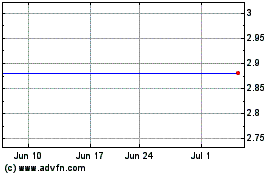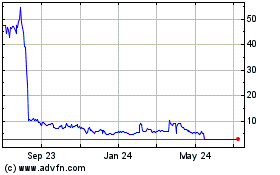Yield10 Bioscience, Inc. (Nasdaq:YTEN) (“Yield10” or the
“Company”), an agricultural bioscience company, today announced an
update on its Camelina line E3902 development program for the
purpose of producing low-carbon feedstock oil for the renewable
diesel market in the U.S. and Canada.
In 2022, the Company plans to continue expanding Camelina line
E3092 seed scale up activities, and to advance the field testing of
multiple candidate herbicide tolerant Camelina E3902 lines
progressing in the pipeline. The Company is also pursuing value
chain collaborations to support the commercial launch of Camelina
to supply oil for the renewable diesel market.
The Camelina line E3902 has shown a consistent 5% increase in
seed oil content as a percentage of seed weight over control
plants. In conjunction with developing yield and oil content traits
for Camelina, Yield10 is also deploying herbicide tolerance gene
traits with a long history of safe use in North America to protect
Camelina from weeds and build grower confidence in the crop. In
2021 Yield10 began a program to introduce herbicide tolerance
traits into Camelina, with initial herbicide tolerant Camelina line
E3902 plants now having been produced for field testing.
“We are focused on leveraging the very promising attributes of
our Camelina line E3902 to produce low-carbon feedstock oil for the
renewable diesel market,” said Kristi Snell, Ph.D., Chief
Science Officer of Yield10 Bioscience. “Camelina is an ideal crop
for the large-scale production of feedstocks for renewable
biodiesel. We are developing Camelina line E3902 as a spring
variety as well as developing two winter varieties to enable
production of low-carbon feedstock oil year-round in the U.S. and
Canada.”
“We are establishing a seed scale up program in 2022 that is
intended to utilize experienced growers in the U.S. and Canada,”
said Darren Greenfield, Senior Director, Seed Operations of Yield10
Bioscience. “Growers are interested in Camelina and determining how
this crop could fit into their rotations. We look forward to
working with growers to produce seed and oil from Camelina line
E3902, as well as our winter Camelina lines. Building on this
experience, we will be positioned to introduce herbicide tolerant
Camelina to a broad range of growers to enable access to acres on a
large scale.”
About Camelina Line E3902
Yield10 researchers produced line E3902 using CRISPR genome
editing to modify three genes involved in oil biosynthesis and oil
turnover in Camelina. USDA-APHIS’s Biotechnology Regulatory
Services (BRS) has confirmed that E3902 does not meet the
definition of a regulated article under 7 CFR Part 340 regulations.
In addition, the Argentine Biosafety Commission (“CONABIA”) has
determined that E3902 is similar to conventionally bred Camelina
varieties, and thus is not regulated under the biotechnology
resolution No. 763/11 of the Ministry of Agriculture, Livestock and
Fisheries in Argentina. Pending the issuance of new regulatory
guidance concerning CRIPSR genome-edited crops, Yield10 will seek
similar nonregulated status confirmation for E3902 from Canadian
regulators in 2022. In 2021 Yield10 conducted field
tests in the U.S. to evaluate the performance and agronomics of
Camelina line E3902. The Camelina line E3902 has shown a consistent
5% increase in seed oil content as a percentage of seed weight over
control plants. Furthermore, field tests conducted in diverse
geographies in 2021 also show that the background Camelina
germplasm for the E3902 trait is among the top performers of those
tested by Yield10. Contra-season, or off season, E3902 seed scale
up is currently underway. Seed from Yield10’s scale up activity is
intended to enable planting at larger scale with growers, as well
as to provide oil for sampling, a key step for market
development.
About Renewable
Diesel
As part of the energy transition, a substantial increase in
renewable diesel capacity in the United States and Canada is
currently underway, with proposed and funded renewable diesel
facilities having a total capacity of more than 5 billion gallons
of biofuels per year. Renewable diesel expansion has surged due to
its low carbon footprint, federal and local subsidies, and its
ability to be used as a drop-in replacement for petroleum diesel.
Renewable diesel feedstock is supplied mainly from used cooking
oil, animal fats (e.g., tallow), and vegetable oil, with the former
two feedstock sources in short supply due to limited production
capacity. Yield10 therefore expects the increase in renewable
diesel feedstock demand over the next few years to be filled by
vegetable oils, which itself have a global production of only 50
billion gallons per year. Moreover, a third of vegetable oils
produced globally are palm oils, which do not qualify for many
biofuels subsidies because of its high carbon footprint. In
contrast, Camelina’s low carbon footprint, and ability to be grown
as a cover crop on otherwise fallow land, make it an attractive
choice to fill the renewable diesel feedstock supply gap.
About Camelina sativa
Camelina sativa, commonly known as Camelina or false flax, is an
annual oilseed plant in the mustard family that is native to
Europe. Camelina has the potential to replicate the development of
modern canola from rapeseed on an accelerated timeline based on
modern technologies, including genomics and genome editing.
Additionally, Camelina grows on marginal lands, displays early
maturation, has enhanced drought and cold tolerance, and requires
fewer inputs than other oilseed crops. With social conscience and
sustainability in mind, Yield10 is leveraging its innovations in
Camelina to use it as a platform crop for producing low-carbon
feedstock oil for renewable fuel; omega-3 nutritional oils;
high-protein meal; and PHA bioplastic.
About Yield10 Bioscience
Yield10 Bioscience, Inc. is an agricultural bioscience company
that is using its differentiated trait gene discovery platform, the
“Trait Factory”, to develop improved Camelina varieties for the
production of proprietary seed products, and to discover high value
genetic traits for the agriculture and food industries. Our goals
are to efficiently establish a high value seed products business
based on developing superior varieties of Camelina to produce
feedstock oils, PHA bioplastics, and omega-3 (DHA+EPA) oil and to
license our yield and seed oil traits to major seed companies for
commercialization in major row crops, including corn, soybean and
canola. Yield10 is headquartered in Woburn, MA and has an Oilseeds
Center of Excellence in Saskatoon, Canada.
For more information about the company, please visit
www.yield10bio.com, or follow the Company on Twitter, Facebook and
LinkedIn.
(YTEN-G)
Safe Harbor for
Forward-Looking Statements
This press release contains forward-looking statements which are
made pursuant to the safe harbor provisions of Section 27A of the
Securities Act of 1933, as amended, and Section 21E of the
Securities Exchange Act of 1934, as amended. The forward-looking
statements in this release do not constitute guarantees of future
performance. Investors are cautioned that statements in this press
release which are not strictly historical, including, without
limitation, statements regarding the Company’s intentions with
regard to plans to continue expanding Camelina line E3092 seed
scale up activities, and to advance the field testing of multiple
candidate herbicide tolerant Camelina E3902 lines, the signing of
collaborations, including whether the objectives of those
collaborations will be met and whether the Company will be able to
generate positive field tests to support a commercial launch of
Camelina, whether the seed scale up program will generate seed and
oil from Camelina line E3902, our expectations with regard to the
timing of the development of the spring and winter varieties of
Camelina line E3902 and the introduction of the herbicide tolerant
Camelina to a broad range of growers, and our expectations related
to the economic value of oilseed crops and the market for renewable
diesel feedstock, constitute forward-looking statements. Such
forward-looking statements are subject to a number of risks and
uncertainties that could cause actual results to differ materially
from those anticipated, including the risks and uncertainties
detailed in Yield10 Bioscience's filings with the Securities and
Exchange Commission. Yield10 assumes no obligation to update any
forward-looking information contained in this press release or with
respect to the matters described herein.
Contacts: Yield10 Bioscience:Lynne H. Brum,
(617) 682-4693, LBrum@yield10bio.com
Investor Relations: Bret Shapiro, (561) 479-8566,
brets@coreir.comManaging Director, CORE IR
Media Inquiries: Eric Fischgrund, eric@fischtankpr.com FischTank
PR
Yield10 Bioscience (NASDAQ:YTEN)
Historical Stock Chart
From Jun 2024 to Jul 2024

Yield10 Bioscience (NASDAQ:YTEN)
Historical Stock Chart
From Jul 2023 to Jul 2024
